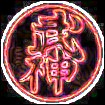A recent post on Shihan Doug Wilson's blog reminded me of something discussed at a recent seminar by Shihan Jack Hoban.
You can read Doug's post at http://henka.wordpress.com/2008/11/24/master-who.
At the seminar, Jack said at his seminar and in conversation. He spoke about budo having no beginning and no end and, if something has no beginning and no end, then there is really no real measurement, no rank, no "mastership". What is the goal? What are we trying to achieve? What is it that we "think" we're learning or gaining? Is it something, or really nothing. Or, is it simply a process, an experience, which shapes who we are as individual human beings?
We all begin budo training in our lives at a particular point. Some people take a while to "get it", some people "get it" right away, some never do and some come into it already "getting it". Yet, the art itself has already existed, being timeless. It's like a constant flowing river with no start or end, since any start or end would cause the river to stop - in other words, it has to be endless to be continuous. We just hop in wherever we are along it's path.
He talked about how, no matter the rank in the room, we really were all the same. If there was an end to achieve, then we could measure how much budo we "get". But since there isn't, we can't. The only measurement we have is in how far we have come since our own individual beginning. This is a purely personal thing, which cannot possibly be compared from one person to another, but only in regards to the individual.
This is why, no matter the rank of the person, we are all students first. There really is no "master", there is no "teacher/student" line. Simply put, we all are on our own personal path, as a student, never able to "master" anything because our path is never subordinate to us. Quite actually, we are the subordinate, we are the servant, of it. It is our "master". Because we are humble in knowing our place, we become students and the real learning happens. This is where humility becomes our yoroi (armor).
To "master" something means to take ownership of what we know, to hold on to it as some kind of tangible thing. Yet, we are admonished by Soke to "gambatte" (keep going/training). This means we must always keep moving forward, not to hold on to anything, but to just keep moving. We are not to sit back on what we've done and learned up to this point. We must always keep looking ahead. Jack spoke of things he learned in his early years and having thought he knew it, yet learned later that he really didn't understand at all. So, how many people think they "know" something now, but will eventually discover they didn't understand it? Does this ever end? Even Soke himself talks about constantly discovering new levels in his own understanding, that his teacher (Takamatsu Soke) is teaching him from the grave. Is there ever a time when we can safely say we "know" anything? Is there ever a time we can capture the river, yet still keep it flowing fresh and vibrant?
Anyway, I found this interesting. As I trained in the room with so many people, most of whom were dan grade, many of whom 5th dan and above, I found myself seeing each person as just another student on their own path. A shodan is on a different path than another shodan - their ranks are not the same because it represents something different for each of them. I saw people at all levels of taijutsu, of personality, of physical stature and of beliefs (one guy talked about having to behead goats for a recent religious ceremony!). Yet, we all came together under the flag of peace, of warrior friends, to put aside our differences and just train together as students, so that we may grow a little more in our own budo path. There were no "masters", believe me!
Yet, I see many claiming such things and often wonder, as Doug did in his blog and as Jack wondered at the seminar, "master" of what?
For me, I'm focused on just staying on the river and enjoying the journey to nowhere.
Tuesday, November 25, 2008
Subscribe to:
Post Comments (Atom)



No comments:
Post a Comment